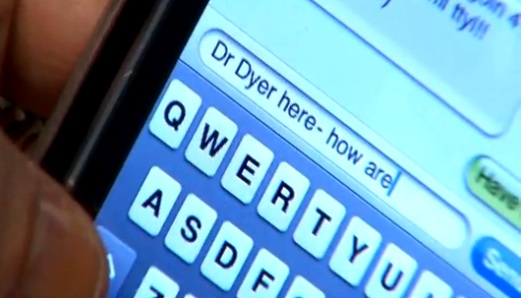 Text messaging for disease management once again is proving popular among patients with chronic conditions and their doctors, though the clinical gains are not always easy to determine.
Text messaging for disease management once again is proving popular among patients with chronic conditions and their doctors, though the clinical gains are not always easy to determine.
In a just-concluded test at Denver Health, about 80 percent of mostly older, low-income people expressed interest in participating in a text-based communication plan beforehand. After the trial, all 135 participants — two-thirds of whom were Hispanic and 70 percent of whom were older than 50 —said they wanted to continue in the program, according to Dr. Andrew Steele, director of medical informatics at Denver's public health system.
The texting trial, funded by the federal Agency for Healthcare Research and Quality, wrapped up Thursday. Steele presented preliminary findings Monday in Chicago at the American Medical Informatics Association's annual symposium — and said Denver Health recently got a Centers for Medicare and Medicaid Services innovation grant and will be rolling a similar program out to 150,000 patients.
As Steele explained, patients have about 5,800 waking hours per year, time when they can do something about their health, but might only interact with a physician for a single hour each year. Electronic communications like SMS can help make more of those hours productive, he said.
Denver Health has dubbed this a "patient relationship management" system much like businesses engage in customer relationship management. The messaging helps patients recall physician instructions and adhere to self-management behaviors. Or, as one participant described it, "It's like an accountability partner," according to Steele.
For the trial population of people with Type 2 diabetes and hypertension, Denver Health sent out text reminders for medication refills, laboratory tests and upcoming medical appointments. Messages also asked patients to report blood sugar, blood pressure, their step count from a pedometer and any barriers they might have had to staying on their meds. Any data returned was sent into the patient's electronic health record.
Denver Health sent out a total of 6,850 texts during the trial. Patients responded to blood sugar-related messages 54 percent of the time, which was about as high as Steele could have hoped for. "For blood sugar, if we sent something out, we got something back," he said. The response rate was 49 percent on requests for step counts but 32 percent when asking for blood pressure.
About 95 percent of texts back from patients had accurate data, Steele said. While this sounds high, clinicians expressed concern about the 5 percent of responses that were inaccurate, according to Steele, himself an internist. However, they were not discouraged by the small clinical gains from the texting intervention, and Steele believes there is potential for sustained improvement over time.
One issue Denver Health is going to have to contend with as it ramps up its texting is whether to invest in a secure messaging system that meets HIPAA requirements. "Who is going to pay for this?" Steele wondered. "It's not super cheap."

















